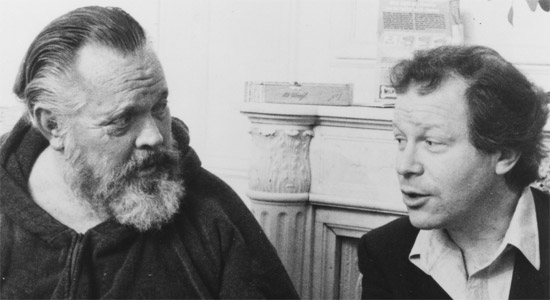 To call Superchunk drummer Jon Wurster “Superchunk drummer Jon Wurster,” while true, is a bit limiting. He also keeps time full-time (and tours constantly) with Bob Mould and the Mountain Goats, contributes hilarity to The Best Show On WFMU With Tom Scharpling and maintains one of the most reliably funny Twitter feeds. Superchunk is on the road supporting its 10th LP, I Hate Music (Merge); while traveling from gigs to home and to more gigs, Wurster filled some rare empty space in his hectic schedule by guest editing magnetmagazine.com this week. Read our brand-new Q&A with him.
To call Superchunk drummer Jon Wurster “Superchunk drummer Jon Wurster,” while true, is a bit limiting. He also keeps time full-time (and tours constantly) with Bob Mould and the Mountain Goats, contributes hilarity to The Best Show On WFMU With Tom Scharpling and maintains one of the most reliably funny Twitter feeds. Superchunk is on the road supporting its 10th LP, I Hate Music (Merge); while traveling from gigs to home and to more gigs, Wurster filled some rare empty space in his hectic schedule by guest editing magnetmagazine.com this week. Read our brand-new Q&A with him.

Wurster: I recommend this book it to anyone seeking a glimpse into the mind of one of cinema’s greatest, most opinionated and frustrating filmmakers. Between 1983 and Welles’ death in 1985, Jaglom recorded conversations with the Citizen Kane director/co-writer/star as they dined at West Hollywood’s Ma Maison restaurant. By this point Welles had become an embittered, cynical-yet-passionate filmmaker struggling to hustle small budgets from an industry that once gave him carte blanche. The transcripts of the tapes find Welles (often bitchily) weighing in on an array of topics:
Ingrid Bergman: “She’s not an actress. Just barely able to get through a scene.”
Politics: “I hate Kissinger even more than I hate Nixon. He’s a selfish, self-serving shit.”
The French: “de Gaulle was always a pain in the ass, and he ended very badly.”
Alfred Hitchcock’s Rear Window: “Everything is stupid about it.”
Hitchcock’s Vertigo: “That’s worse.”
One of the book’s funnier moments comes during a conversation about The Big Brass Ring, a political drama Welles was trying to get made at the time. Jack Nicholson passed on the lead role and Welles swats away each of Jaglom’s ideas for replacing him: Jack Lemmon (“He looks every minute of his age”), Dustin Hoffman (“No dwarfs”), Al Pacino or Robert De Niro (“You can’t have some Italian play that role: ‘You gotta respect-a the president, and that’s-a me’”). None of them pass muster with Welles.
Just moments after Welles dismisses several of the 20th century’s most respected actors, he and Jaglom enter into a lengthy discussion on whether or not the auteur who made what many consider the best motion picture ever should accept an offer to appear on The Love Boat. Welles eventually turned down the role for financial reasons and a strong dislike of Love Boat captain Gavin MacLeod (“He has a New York accent that gets my hackles up, I can’t stand it!”).
I don’t want to give the impression that this book is a non-stop gripe session. Welles gives high marks to many: Carole Lombard, Lon Chaney, FDR, Bach and Beethoven, in particular. But perhaps his highest praise is reserved for the people of Hungary: “I love them to the point of sex!”






